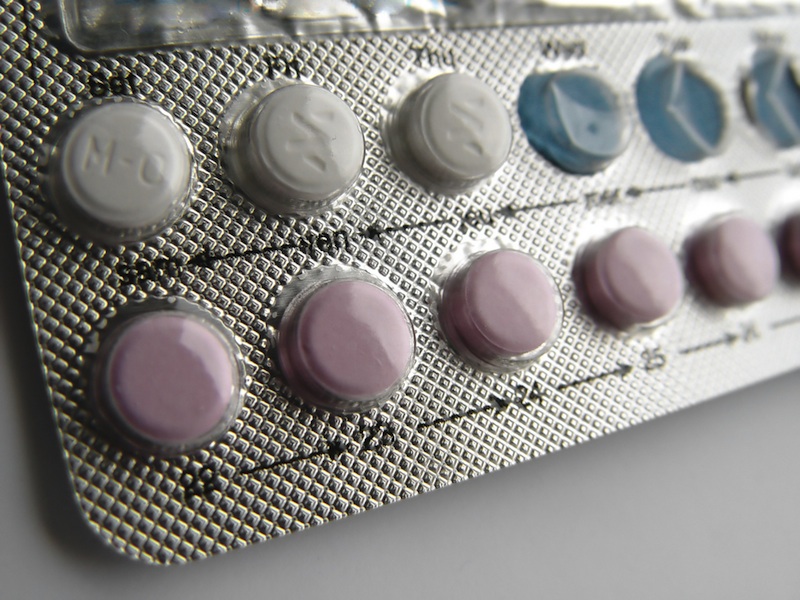Pharmacies Mislead Teens on Morning-After Pill

Women who live in low-income neighborhoods are more likely than their wealthier counterparts to get misinformation about emergency contraception from their local pharmacies, a new study finds.
The results suggest that young women in areas where teen pregnancy rates are highest may struggle most in trying to get the morning-after pill, which can prevent ovulation — and thus pregnancy — after unprotected sex.
The pill, sold under the brand names ella, Next Choice and Plan B One-Step, made headlines this month when the U.S. Secretary of Health and Human Services, Kathleen Sebelius, overruled a Food and Drug Administration recommendation that teens younger than 17 be able to get emergency contraception over the counter. Currently, the pill is available at drug stores to women 17 and older, but younger teenagers must get a prescription. Emergency contraception pills become less effective as time passes after unprotected sex, so time is of the essence for women hoping to prevent a pregnancy.
For that reason, quick access to the pill is key. But Tracey Wilkinson, a general pediatric fellow at Boston Medical Center and the Boston University School of Medicine, had been hearing "weird things" about teens' attempts to get the pill — "things like prescriptions not showing up if they'd been sent electronically, or if they were an adolescent, they would have difficulty getting their prescriptions filled," Wilkinson told LiveScience. [7 Surprising Facts About the Pill]
The rumors spurred Wilkinson to look into how accessible the morning-after pill really is for teenagers. From September to December 2010, she and her colleagues had female research assistants call every pharmacy in Nashville, Tenn.; Philadelphia, Pa.; Cleveland, Ohio; Austin, Texas; and Portland, Ore.
Seeking the morning-after pill
In each call, the research assistant would first ask whether the pharmacy stocked morning-after pills. About 80 percent of the 943 pharmacies did, a figure that held steady no matter the income level of the neighborhood.
Get the world’s most fascinating discoveries delivered straight to your inbox.
Next, the caller would ask, "If I'm 17, is that okay?" The morning-after pill is available to 17-year-olds over the counter, so the answer should have been yes. But in 19 percent of calls, the pharmacy staff said no, that a 17-year-old could not get emergency contraception under any circumstances. The proportion of erroneous "no" answers was higher in low-income neighborhoods, with 23.7 percent of low-income area pharmacies giving false information, compared with 14.6 percent of pharmacies in wealthier areas.
Finally, the caller asked at what age it was possible to get emergency contraception over the counter. In about half of the calls, they got the wrong answer. And all but 11 of those wrong answers put the age too high, potentially restricting access. Again, the misinformation problem was worse in low-income neighborhoods. Half of pharmacies in well-off areas gave incorrect information, compared with 62.8 percent in poorer neighborhoods.
Morning-after misinformation
Wilkinson said it isn't yet clear whether pharmacy employees were misinformed about emergency contraception or whether they were trying to prevent teens from getting the drugs. Many anti-abortion advocates oppose the pill.
"There definitely were calls where it was very clear that the pharmacy was uncomfortable based on the fact that it was a teenager calling," Wilkinson said.
But in other cases, she said, the research assistants got the impression they were querying whatever staff member happened to pick up the phone, and that the staffers simply weren't trained to answer their questions.
"It's a huge education opportunity," Wilkinson said. Extra training for staff or educational pamphlets in pharmacies could help ease the problem, she said.
"Anytime there's a deal or you're told you can't get [emergency contraception] anywhere, you've lost a really good opportunity for pregnancy prevention," Wilkinson said. "And I think the last thing anyone wants is more unplanned pregnancies within an adolescent population."
The research appears online today (Dec. 19) in the Journal of the American Medical Association.
You can follow LiveScience senior writer Stephanie Pappas on Twitter @sipappas. Follow LiveScience for the latest in science news and discoveries on Twitter @livescience and on Facebook.

Stephanie Pappas is a contributing writer for Live Science, covering topics ranging from geoscience to archaeology to the human brain and behavior. She was previously a senior writer for Live Science but is now a freelancer based in Denver, Colorado, and regularly contributes to Scientific American and The Monitor, the monthly magazine of the American Psychological Association. Stephanie received a bachelor's degree in psychology from the University of South Carolina and a graduate certificate in science communication from the University of California, Santa Cruz.


